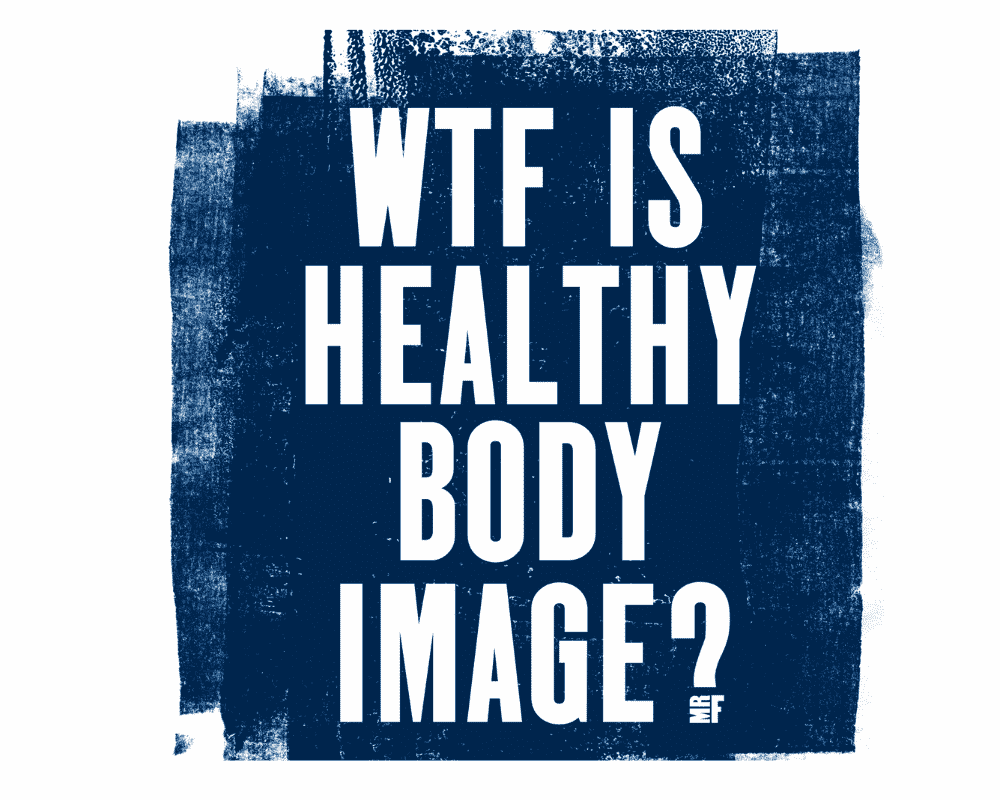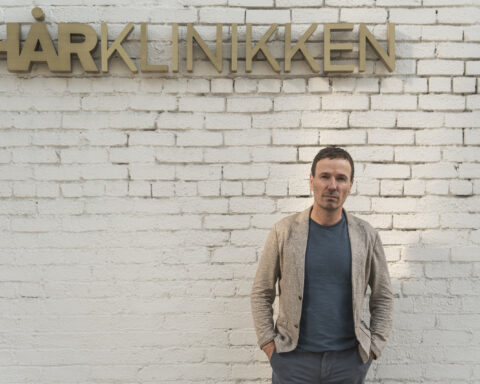It is certainly important to exercise, but if we become too obsessive about the appearance of our bodies it can be detrimental to our health.
Pressure from our peers, the media and ourselves can all contribute to what we perceive as healthy and handsome. And while much reporting of body image issues focuses on women, studies have shown that it is just as prevalent among men.
Dr Tyler Bradstreet is the Director of Clinical and Sport Psychology at Texas Tech University, and oversees mental and behavioral health services for all student-athletes across Texas Tech Athletics.
His work focuses on helping young athletes balance their physical training with their mental health. And it’s a crucial role in a world where one study found that 90% of undergraduate men in the U.S experience some degree of body dissatisfaction.
This week we have featured interviews with two men who have found an admirable balance between keeping their mind and body in shape, dancer Derek Hough and fitness trainer Rodrick Covington.
And here, in the latest in our WTF series examining important subjects in the world of health and well-being, Dr Bradstreet gives a psychologists view on the pressures on men, and how we can ensure exercise is helping, and not hindering, our overall health.
Words by Dr Tyler Bradstreet
My background is in men’s health and trying to get men to prioritize healthy behaviors. And when it comes to body image, I think there’s a spectrum. But at the end of the day, it is really how we are demonstrating our manhood.
It’s based on the norms and our environment. Somebody who’s driving for muscularity and focused on having a particular aesthetic with their body, they view that as a way to demonstrate their masculinity. But some men may see prioritizing your body and your health as being more feminine, or that men are not supposed to worry about those things.
I think about the difference in my generation and my father’s generation. I think we are definitely in more of an exercise focused culture now. But people like my dad may still subscribe to some of those more traditional ideas of what it means to be a man — don’t go to a doctor, don’t go to a gym, don’t worry about what you eat. Their masculinity is demonstrated to be the antithesis of the Instagram model. So it’s inextricably tied to social factors.
Being able to try to approach these men from a body image perspective is very different, but at the same time, the goal is still the same. How can you help peel back some of those rigid, irrational or just frankly unhelpful norms, and get them to approach health and wellness from more of a moderation-based perspective on both sides?
I think you never want to pathologize exercise, at least, in essence. In general, I think if a man is striving to be muscular, that tells me they’re probably in the gym, lifting weights, engaging in productive cardio behaviors, focusing on their diet. Maybe it’s not healthy to have these ideal body types, because maybe they’re unattainable. What we see on social media, or movie stars and actors, they essentially get paid millions of dollars to craft their body or have to go help craft their body. But at its core, I think men striving to want to be better from a health standpoint, we should prioritize that in a way.
I think where it becomes an issue is when we get really rigid around it. Like there’s only one way to be, or there’s only one way to look, and there’s only one way to get there. There are still a lot of conversations that happen in men’s sports that are unproductive from a health and wellness perspective. Whether it’s body shaming, really focusing on some of those biomarkers like weight, body fat percentage. And there’s this assumption that if you’re not meeting expectations from a body perspective, then you’re not putting in enough effort or there’s something wrong with you. And that’s concerning, because if that happens, they could start overtraining which can increase their risk for injury and leads to unhealthy coping behaviors or just excessive anxiety.
And it’s always a fine line, because you look at people who might have body dysmorphic disorder, and on the exterior they are probably engaging in some of these health-related behaviors. They’re the ones who are probably going to the gym, thinking about what they eat, just being really focused on all those things that we view as being the epitome of health. But for whatever reason, and it’s different for everybody — it could be how they see themselves, how they see the world, what their goals are — something has got into their conceptualization of what they need to look like, to the point where some of those unhelpful thoughts lead to excessive anxiety. And it can get to the point where people might have 0% body fat, and they can barely pinch their skin, but they’re seeing that as a huge flaw which they internalize and feel embarrassed and ashamed about. And they can engage in even more excessive health behaviors, where it’s unhealthy and dangerous, or maybe even avoid social situations. Someone else looks at them and they’re like, “Man, this guy is the epitome of the male body.” But for him, his internal self-worth and self-esteem and self-image, the water has been muddied, leading to him not being able to see himself for what he truly is.
Find things that are interesting to you from a physical activity standpoint. And being with your friends is important, so connect that to physical activity and kill two birds with one stone. You get to establish those important, emotional and personal relationships while doing things that are fun and interesting. At the end of the day, I think it’s being intentional about what you do, and really put more thought behind it, instead of just reacting to situations to the point where you have to make more immediate changes.
I think that a masculine man is a healthy man. So how can you really put that out there so it doesn’t have to be on those extreme ends of the spectrum? What makes you happy? What makes you healthy? What are your values? What is your purpose? I think men tend to align with things that are a little bit more like coaching, as opposed to traditional therapy. And looking at this from a coaching perspective, how can you coach yourself to prioritize your mental health and find tools that allow you to be happy and healthy?
It reminds me of my job as a psychologist, and 99% of the time the answer is, “It depends.” And if someone is giving you an absolute, that’s probably the person that you should be more concerned about. And especially when it comes to health and body image. Take an individualized approach, figuring out what’s right for you, and knowing that at the end of the day, as long as it’s grounded in your values, your interests, what it means to you to be a man, that’s all you can really ask for.











